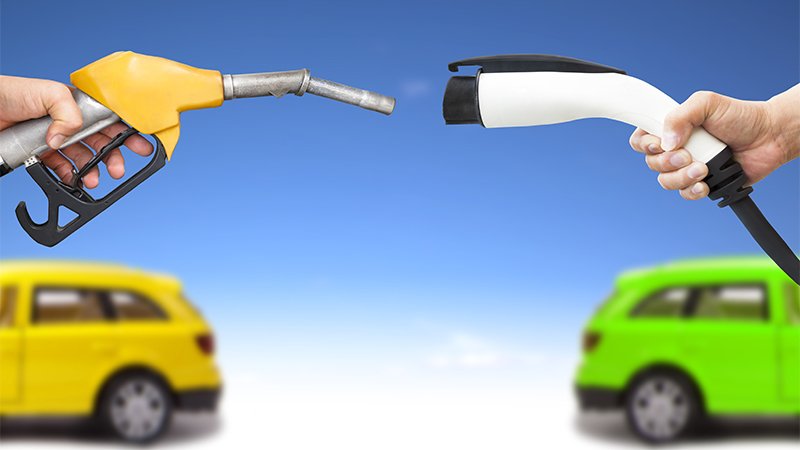Electric motors have advantages compared to internal combustion engines. They have greater torque at lower speed, they are easily configured for regenerative power technologies (like braking), and they are more efficient users of power.
Electric motors are more than twice as energy efficient as internal combustion engines, meaning they produce twice as much motion for every unit of fuel. The calculations have a few steps here, but they line up this way. Internal combustion engines are about 35% efficient. For a typical internal combustion engine alone, one unit of fuel yields 0.35 units of power. Internal combustion engines, however don’t function independent of infrastructure support. Energy required for storage and delivery systems for fuels removes about half of an engines fuel conversion efficiency, -17%. On the other hand, electric motors are over 90% efficient. Their comparative advantage is eroded a bit by storage (about 15% of energy is lost in battery charging), transmission (4% of electrical power is lost in transmission lines, and by production (combined cycle power plants turn 40-60% of input into power). These collateral losses make electric motors 37% net efficient (90% * (1-15%) * (1-4%)* 50%). 37% efficient electric motor processes are more than twice as efficient as 17% efficient internal combustion engines.
Electric motors are gaining share in transportation markets, albeit from a very small base. If electric motors continue to advance on internal combustion engines, one of the outcomes will be a reduction in petroleum use. A 15 gallon tank-full of gasoline can power an average vehicle for 400 miles. In electric power terms, each gallon yields 33.41kwh of energy per gallon (Alternative Fuels Data Center), for a total of 501kwh used to go 400 miles. On a per mile basis, the energy used by our sample internal combustion engine is 1.25kwh per mile. Comparatively, representative electric vehicles use a full 60kwh battery pack to travel 250 miles, 0.24kwh of energy used per mile. Both of these figures represent efficiency once the power resides on a vehicle. Adjusting numbers for the supply chains described above, an average internal combustion powered vehicle uses 2.5kwh of energy per mile while a representative EV uses 0.56kwh of energy per mile.
